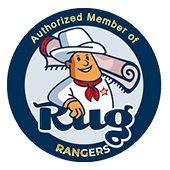Within 25 Miles of Green Brook
Within 25 Miles of Green Brook
Care of Oriental Rugs
Oriental rugs are not just pieces of fabric; they are artworks that carry a rich history and cultural significance. These rugs are often handcrafted, making them unique and valuable. If you're a proud owner of an Oriental rug in New Jersey, you know how important it is to keep it in pristine condition. Oriental rugs, with their intricate patterns and rich history, are cherished possessions that add a touch of elegance to any home. However, caring for these delicate pieces requires special attention. This comprehensive guide will walk you through the care of Oriental rugs and help you understand the best practices for Oriental rug cleaning in New Jersey.

Why Care for Your Oriental Rug?
1. The Value of Oriental Rugs
Oriental rugs are often passed down through generations, making them precious family heirlooms. Their value only increases with time, especially if they are well-maintained. The intricate designs and high-quality materials used in these rugs make them not only a visual delight but also a significant investment.
2. The Importance of Regular Maintenance
Regular care of Oriental rugs ensures that they remain vibrant and intact for years. Dust, dirt, and spills can deteriorate the fibers, leading to discoloration and wear. By maintaining a consistent cleaning routine, you can protect your rug from premature aging and damage.
Understanding the Composition of Oriental Rugs
Materials Used in Oriental Rugs
Oriental rugs are typically made from natural materials like wool, silk, and cotton. Each material requires different care methods, so it's crucial to understand what your rug is made of.
- Wool Rugs: These are the most common and are known for their durability and softness. Wool rugs is naturally resistant to stains but can be prone to fading.
- Silk Rugs: These are luxurious and have a fine sheen. However, silk rug is delicate and requires gentle cleaning methods.
- Cotton Rugs: Often used in the foundation of the rug, cotton adds strength and flexibility.
The Weaving Techniques
The way a rug is woven can also impact its care. Hand-knotted rugs, for instance, are more durable and can withstand regular cleaning, whereas machine-made rugs may require more delicate handling.
The Risks of Improper Cleaning
1. Common Mistakes in Oriental Rug Care
One of the most common mistakes is using harsh chemicals or abrasive tools on Oriental rugs. These can damage the fibers and fade the colors. Another mistake is over-wetting the rug, which can lead to mold and mildew growth.
2. The Consequences of Neglect
Neglecting your rug can lead to irreversible damage. The fibers can become brittle, the colors can fade, and the intricate patterns can lose their definition. In some cases, the rug may even begin to unravel.
Professional vs. DIY Cleaning: What You Need to Know
When to Opt for Professional Cleaning
While regular vacuuming and spot cleaning can be done at home, there are times when professional cleaning is necessary. If your rug has stubborn stains, is particularly old or delicate, or hasn't been cleaned in years, it's best to consult a professional Oriental rug cleaner in New Jersey.
DIY Cleaning Tips for Oriental Rugs
If you choose to clean your rug at home, here are some tips:
- Vacuum Regularly: Use a vacuum without a beater bar to remove dust and dirt.
- Spot Clean Spills Immediately: Blot the spill with a clean cloth, but avoid rubbing.
- Use a Rug Pad: This helps prevent wear and tear by providing cushioning.
The Process of Professional Oriental Rug Cleaning
1. Initial Inspection
Before cleaning begins, a professional will inspect your rug to identify any areas of concern, such as stains, wear, or damage.
2. Dusting
The rug is dusted to remove embedded dirt and debris. This step is crucial as it prevents the dirt from turning into mud during the washing process.
3. Washing
A professional cleaner will use a gentle, pH-balanced solution to wash the rug. This solution is designed to clean the rug without damaging the fibers or colors.
4. Drying
The rug is then dried in a controlled environment to prevent shrinkage and color bleeding.
5. Final Inspection
After drying, the rug undergoes a final inspection to ensure it's clean and free of any issues.
How to Choose the Right Oriental Rug Cleaner in New Jersey
1. Check for Experience and Expertise
Look for a cleaner who specializes in Oriental rugs and has years of experience. Ask about their cleaning methods and whether they use eco-friendly products.
2. Read Reviews and Ask for References
Customer reviews can provide insight into the quality of service. Don't hesitate to ask for references or testimonials from previous clients.
3. Get a Detailed Quote
Before committing, get a detailed quote that includes all services and potential additional costs. This will help you avoid any surprises.
Maintaining Your Oriental Rug Between Professional Cleanings
1. Regular Vacuuming
As mentioned earlier, regular vacuuming is essential. However, be sure to avoid vacuuming the fringe, as this can cause it to fray.
2. Rotate the Rug
Rotating your rug every six months ensures even wear and prevents any one area from becoming too worn.
3. Protect from Sunlight
Direct sunlight can fade the colors of your rug. Use window coverings to protect it from UV rays.
4. Use a Rug Pad
A rug pad not only provides comfort underfoot but also protects your rug from wear and tear. It can also prevent slipping, which is especially important in high-traffic areas.
Handling Common Issues with Oriental Rugs
1. Dealing with Stains
For minor stains, blot the area with a clean cloth and a mild detergent solution. Avoid using harsh chemicals, as they can damage the rug.
2. Addressing Wear and Tear
If you notice any fraying or thinning areas, it's best to consult a professional for repair. Ignoring these issues can lead to more significant damage over time.
3. Preventing Moth Damage
Moths can cause severe damage to Oriental rugs, especially if they are stored in dark, humid areas. To prevent this, store your rug in a dry, well-ventilated space and consider using moth repellents.
The Environmental Impact of Oriental Rug Care
1. Choosing Eco-Friendly Cleaning Products
When cleaning your Oriental rug, opt for eco-friendly, biodegradable products. These are less harmful to the environment and are gentle on the rug's fibers.
2. Sustainable Practices in Rug Care
Consider professional cleaners who use sustainable practices, such as water conservation and the use of non-toxic cleaning agents. These practices not only protect your rug but also reduce the environmental impact of the cleaning process.
Conclusion
Caring for your Oriental rug is an ongoing process that requires attention to detail and a commitment to regular maintenance. By following the guidelines outlined in this article, you can ensure that your rug remains a beautiful and valuable part of your home for years to come. Whether you choose to clean your rug at home or hire a professional in New Jersey, the key is to be proactive in your care efforts. Remember, a well-maintained Oriental rug is not just a floor covering; it's a piece of history that deserves the utmost care.
At Rugs Cleaning New Jersey, we specialize in providing top-tier Oriental rug care services across NJ. Our expert team understands the unique needs of these exquisite pieces and uses advanced, eco-friendly methods to ensure your rug stays vibrant and intact for years to come. Don’t settle for less when it comes to the care of your precious rugs. Contact us today to schedule your professional cleaning and give your rug the care it needs to shine.


